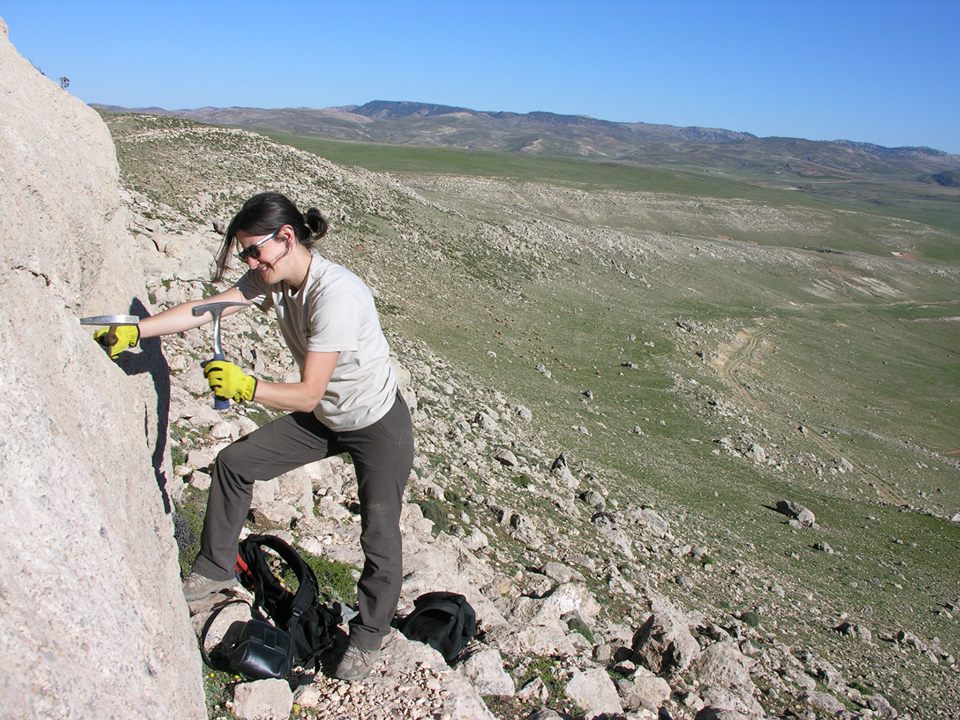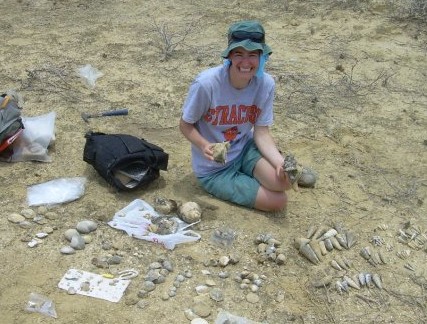
PhD Penn State, MS University of Cincinnati, BA SUNY Geneseo
Field sites past & present: Angola, New Zealand, Morocco, Colombia, Costa Rica, Bahamas, US Virgin Islands, and, of course, the continental US
My senior year of college, when I was agonizing over which graduate school to attend, Dr. Scott Wing gave me a wonderful piece of advice that I now pass on to any student who comes to me for help. He said that while being advised by world-class scientist at a highly ranked university is important, it is perhaps more essential to have a great set of peers. (Scott would know – look at all the rock stars that came out of Yale in the late 70s and early 80s.) So based on a gut feeling from my prospective student visit and an email from a highly touted recruit who was finishing her Master’s at the University of Cincinnati and had just settled on Penn State for her PhD, I decided to also go to Penn State. And thus began the friendship that has influenced my life more than any other. Since that first year in graduate school, we’ve pushed each other to be better scientists, not to mention better human beings. But unlike many sibling relationships, there has never been competition between us. That’s who Jocelyn is – that’s the environment she creates around herself.
Thankfully, she’s doing fieldwork in Morocco right now, hopefully far away from the nearest computer and can’t smack me for embarrassing her. However, I’m not the only person who has benefited from the noncompetitive, intellectual setting that Jocelyn generates. Before coming to AMNH, Jocelyn was a postdoc at the Smithsonian. I learned from several graduate students that any time they had to make a major decision, they would think, “What would Jocelyn do?”
The succinct answer to what kind of science she does is the title of one of her scientific talks: “Clams, catastrophes, and climate change.” Jocelyn is a paleoecologist and paleoclimatologist who studies the effects of environmental perturbations on shallow ocean life. She does this by collecting bulk sediment samples from fossil-rich rocks that were deposited in the shallow ocean, taking them back to the lab, and carefully identifying every single shell in the sample. Jocelyn also collects tiny samples from large, well-preserved bivalve (clams and their relatives) shells to analyze oxygen isotopes and thereby reconstruct climate. She’s currently using some really cutting-edge quantitative analyses to study marine ecosystem responses to the end Cretaceous meteorite impact (dead dinosaurs) and Paleogene (hothouse Earth ~65-34 Ma) climate changes. Most of Jocelyn’s fieldwork for this project was done in the southeastern US, where she braved wild boars, leeches, and really hot and humid weather.
Recently, Jocelyn started working in Africa, trying to piece together a record of mollusc diversity and community structure. A common theme in paleontology is that Africa is understudied (see previous blog), and so she truly is on a quest of discovery. And look how happy it makes her:
For more information on Dr. Jocelyn Sessa, visit http://www.amnh.org/learn-teach/master-of-arts-in-teaching/faculty-staff-profiles/jocelyn-a.-sessa

This is great, Ellen.
Ellen, I just wanted to say that you and Joc and all these amazing women are making a big difference. I’m teaching a paleontology field course this summer for graduate students in Montana. Over 90% of applicants for the course — women. Seems to now be a most suitable job for a woman! Thank you!
Hi Mark! Thanks for the message. That is really amazing to hear that so many women wanted to be part of your course this summer. I hope they will continue on in the field – it gets tiring being the token female. Best wishes for the summer course!